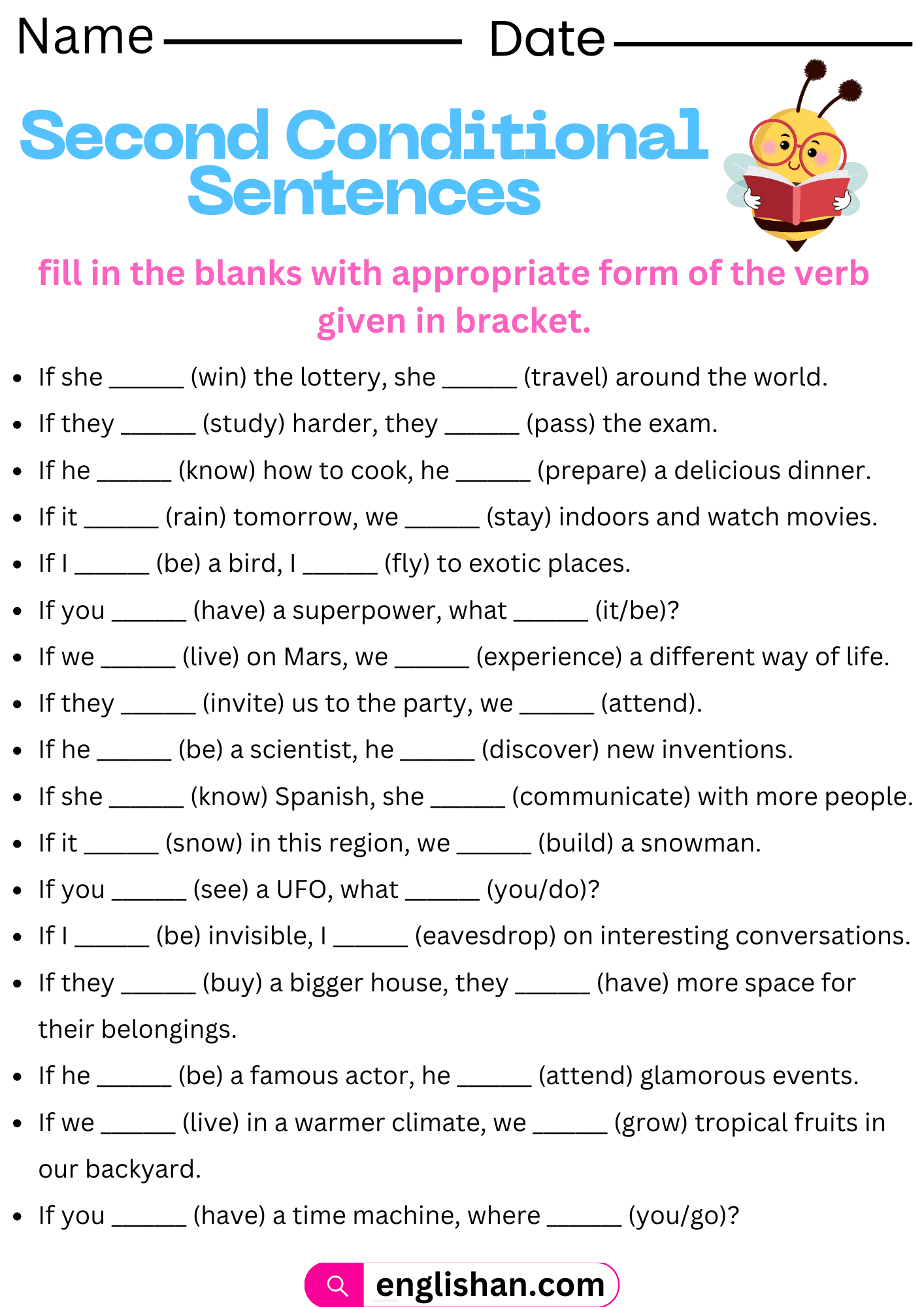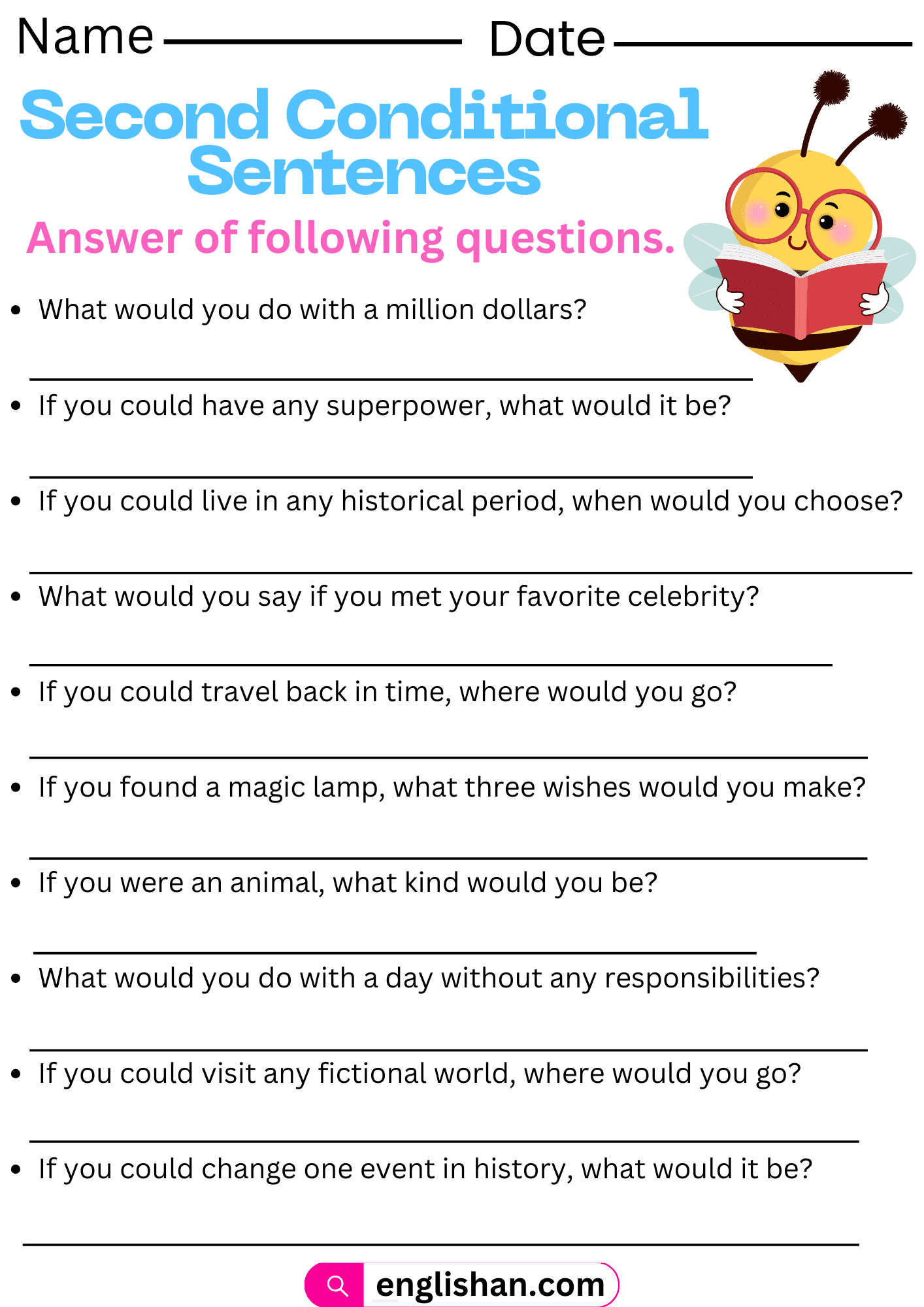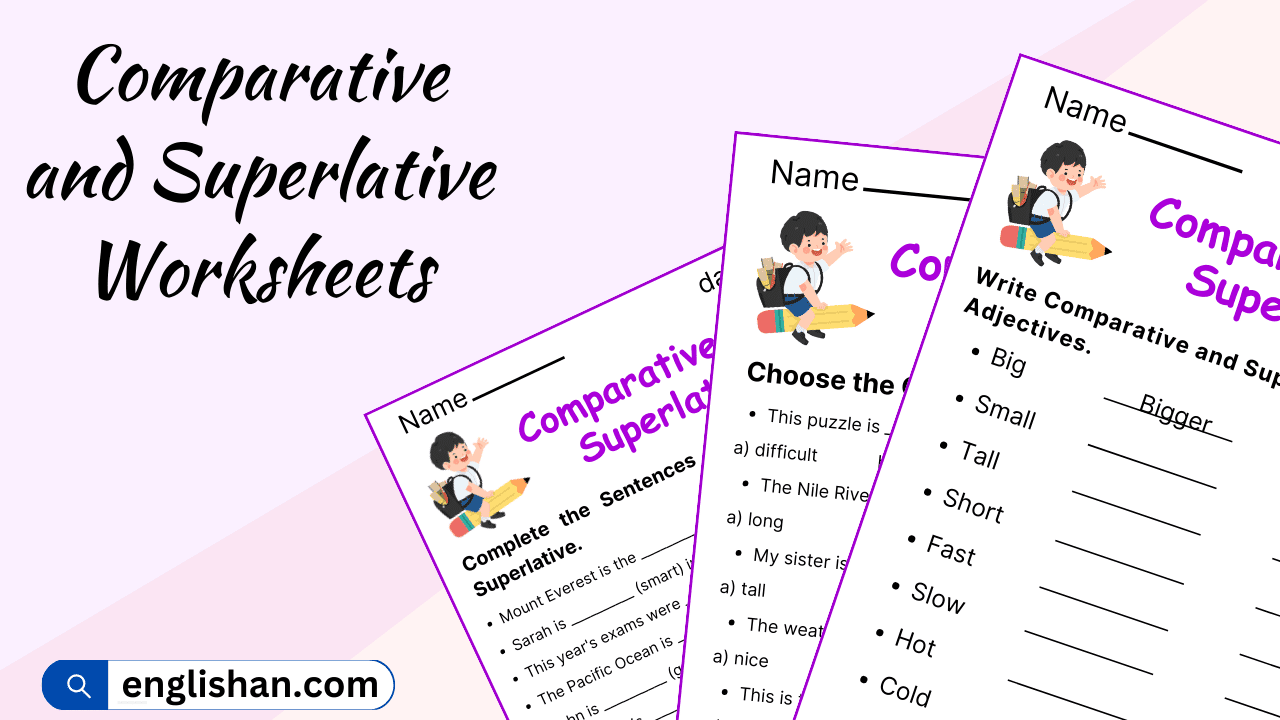Contents
Second Conditional Worksheets are important tools for learning English. They help you understand how to talk about things that might not happen but are interesting to think about. These worksheets teach you to use ‘if’ in sentences about unlikely or imaginary situations. When you use Second Conditional Worksheets, you learn how to express your ideas in a more creative way. They are essential for anyone trying to get better at English. These worksheets make learning this part of English grammar easier and more fun for everyone, especially beginners.
Second Conditional Worksheets
Worksheet 1:fill in the blanks with appropriate form of the verb given in bracket.
- If she _______ (win) the lottery, she _______ (travel) around the world.
- If they _______ (study) harder, they _______ (pass) the exam.
- If he _______ (know) how to cook, he _______ (prepare) a delicious dinner.
- If it _______ (rain) tomorrow, we _______ (stay) indoors and watch movies.
- If I _______ (be) a bird, I _______ (fly) to unfamiliar places.
- If you _______ (have) a superpower, what _______ (it/be)?
- If we _______ (live) on Mars, we _______ (experience) a different way of life.
- If they _______ (invite) us to the party, we _______ (attend).
- If he _______ (be) a scientist, he _______ (discover) new inventions.
- If she _______ (know) Spanish, she _______ (communicate) with more people.
- If it _______ (snow) in this region, we _______ (build) a snowman.
- If you _______ (see) a UFO, what _______ (you/do)?
- If I _______ (be) invisible, I _______ (eavesdrop) on interesting conversations.
- If they _______ (buy) a bigger house, they _______ (have) more space for their belongings.
- If he _______ (be) a famous actor, he _______ (attend) glamorous events.
- If we _______ (live) in a warmer climate, we _______ (grow) tropical fruits in our backyard.
- If you _______ (have) a time machine, where _______ (you/go)?
- If it _______ (be) sunny tomorrow, we _______ (go) to the beach.
- If they _______ (start) a band, they _______ (tour) the world.
- If I _______ (know) how to dance, I _______ (join) the dance competition.
- If she _______ (speak) French, she _______ (communicate) with the locals during her trip.
- If he _______ (be) the president, he _______ (implement) new policies.
- If it _______ (be) a full moon tonight, we _______ (have) a moonlit picnic.
- If they _______ (find) buried treasure, they _______ (become) rich overnight.
- If you _______ (invent) a time machine, what _______ (you/do) with it?

Worksheet 2: Answer of following questions.
Answers of Worksheet 1:
Answers of Worksheet 2:
- Invest and travel.
- Fly or read minds.
- The Renaissance or ancient Greece.
- Express admiration and take a selfie.
- Ancient Rome or the future.
- Health, wealth, and happiness.
- Dolphin or eagle.
- Relax and pursue hobbies.
- Hogwarts or Middle-earth.
- Prevent a major conflict.
- Embrace the opportunity and explore.
- Eradicate poverty or promote peace.
- Attend private events and observe.
- New Zealand or Japan.
- Share the discovery with scientists.
- Albert Einstein or Leonardo da Vinci.
You may also Like:
- Conditionals and Types of Conditionals
- Has Have Worksheets With Answers
- Animal Sounds Worksheet
- List of Verb + Preposition Collocations
FAQs:
The second conditional is used to talk about unreal, imaginary, or unlikely situations in the present or future.
Structure: If + past simple, would + base verb
Example:
If I had a car, I would drive to work.
It’s used to express things that aren’t true now or things that are unlikely to happen.
Here are 5 examples of conditional tense:
1. First Conditional (Real future possibility):
If it rains, we will stay home.
2. Second Conditional (Unreal present/future):
If I won the lottery, I would travel.
3. Third Conditional (Unreal past):
If I had studied, I would have passed.
4. Mixed Conditional (Past and present):
If I had known, I would be ready now.
5. Zero Conditional (General truths):
If you heat water, it boils.
A zero conditional sentence talks about facts or situations that are always true when a condition is met.
Structure: If + present simple, present simple
Example: “If you heat water to 100°C, it boils.”
It is used for general truths, scientific facts, or things that always happen in certain situations.
You May Also Like







